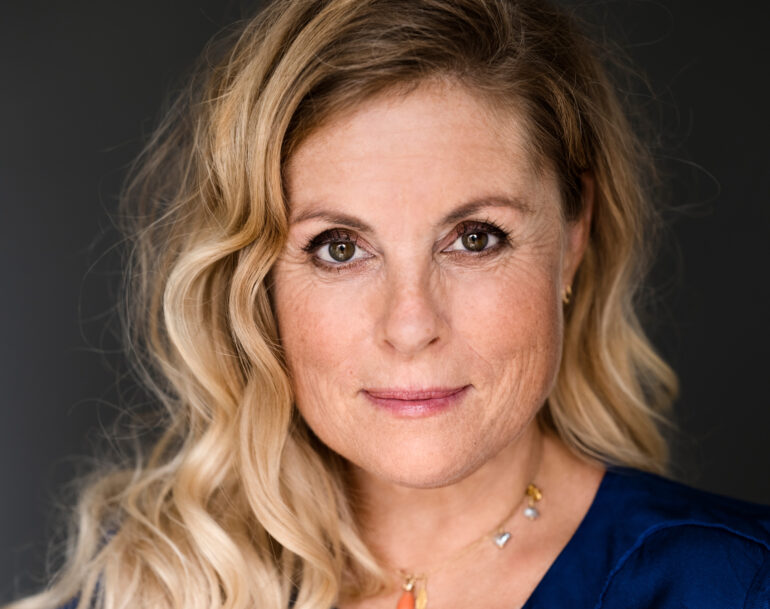WRITTEN BY: Per Juul Carlsen
There seems to be no end to documentary producer Sigrid Dyekjær’s success these days. She denies having a secret recipe, but mentions an interest in films with the strength to change things.
Somehow Sigrid Dyekjær seems to be at the centre of the world these days. Last year her company, Real Lava, was one of the companies behind Guy Davidi’s Innocence, which perhaps gives us the best explanation of why the Israelis are hitting back so hard in Gaza. Last week she won an Emmy Award for Best Producer with The Territory. This was her second Emmy (the first was for The Cave in 2019). And in these very days she’s leading an Oscar campaign for Lea Glob’s Apolonia, Apolonia. The film is shortlisted for the Oscar for Best Documentary Feature.
“What’s your secret?” we asked Sigrid Dyekjær. And while answering that question, she also talked about how much the financial support system in the Nordic countries are in need of an update.
Well, what’s the secret behind your success?
I don’t have “a secret recipe”. If I did, I would use it over and over. But of course I have a sense of what I want to focus on, and a hope that it will resonate throughout the world. I have a gut feeling, and I know how to work hard. That’s two ways of doing it. My gut feeling has to do with all the years I’ve been working with documentaries. You can sense something. I don’t believe in trying to calculate success without having a feeling of excitement in your gut.
What did your gut tell you when you heard the pitch on The Territory?
It’s important for me that the films I work with have a meaning. I want them to have a deep impact. Every time I consider producing a film, I ask myself: “Why do I want to produce this film? What’s important to me in this film? What makes me want to get up at five in the morning and work like mad for years?” With The Territory it was the chance to bring a focus on the burning Amazon jungle and the gargantuan climate crisis. I also wanted it to be a cinematic experience. I’ve seen a lot of films on the indigenous people in the Amazon, and they always end up looking educational. I believe that the films will have a deeper impact and a longer lasting relevance if they are on a higher creative level. And that’s difficult to finance. It's difficult to fund those extra years you want to shoot, and the extra twenty weeks of editing that a documentary demands. There’s this idea that documentaries are a lot cheaper to make than fiction. But they are often more expensive. You shoot and edit for a longer time, and the sound editing is often more complex. Making a good documentary is expensive. Financing in the Nordic countries doesn’t add up if you want to make a film with a long-lasting impact. The money does not follow the film.
What do you mean by “impact”?
It’s an exciting word. It has something to do with having a platform that makes sense both to the people in the film and the people who make the film. Regarding The Territory, we spent a lot of time asking ourselves “what does this indigenous community need?” The Amazon is their home, and they’re trying to save their home from land grabbers. We raised enough money for them to build a media centre in their territory, which meant that when journalists asked for their permission to enter their territory in order to film, they told us: “That’s okay, but just tell us what you want. We will film it and send you the bill.” It was important to them to take control of their own narrative.
It sounds like activist filming?
Actually, I hate that term: “activist film”. It tends to overlook the finer nuances of the subject, and quite often it forgets to ask questions to the opposing party in a conflict. I believe in nuances. I believe that film is nuances. It makes it human, and easier to relate to for everybody. I do not see myself as an activist filmmaker at all. The Territory made use of what we call “participatory filmmaking”, which means you cooperate with the people on the other side of the camera. You create something together. This is also what Lea Glob did with Apolonia, Apolonia. It is very much a film that ends up being a joint work of both the director and the subject.
